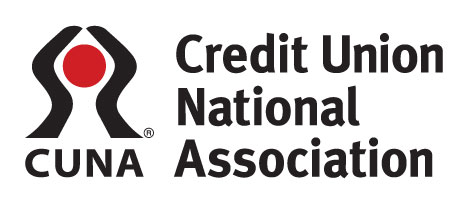U.S. Credit Union System Leaders Unite to Grow Digitization
2021-06-10The U.S. Credit Union System Digitization Working Group will ground its efforts around the following purpose statement:
- Create strong awareness of the factors driving the digital transformation of financial services;
- Identify the strategic imperatives, gaps, and opportunities for credit unions to remain relevant and thrive through the provision of digital services to their members; and
- Translate ideas into a judicious number of actionable solutions and drive system collaboration to foster widespread access to, and adoption of, those solutions to excel in consumer satisfaction metrics and help members achieve financial well-being.
We are bringing together 41 credit union system leaders from across the U.S. to create a roadmap for digitization. The working group includes 19 credit union CEOs and executives who specialize in information technology and security, omni channel strategy, innovation, retail and people management. State League executives and credit union system organizations such as CUNA Mutual Group, CO-OP Financial Services, Origence, PSCU, Cooperative Credit Union Alliance, Credit Union National Association (CUNA), American Association of Credit Union Leagues and CUNA Strategic Services will play a vital role in this collaborative effort.
World Council of Credit Unions (WOCCU) is also represented by Chief Information Officer Jack Van Kauwenbergh. This reinforces the important connection between the work WOCCU is leading through the Challenge 2025 initiative, and what is being done to understand and address the acceleration of digital transformation here in the U.S. As is reinforced through the dialogue I participate in as a part of WOCCU’s COVID-19 Response Committee, the disparity in services based on world geography, whether healthcare due to worldwide pandemics, digital delivery as a result of availability or the myriad other topics that could be brought forward, is striking and often not well understood.
I say this noting many within our 50 states here perceive that we may be a leader in all things, including digital delivery. Many of us are aware that is not the case and recognize our challenge is greater, in some ways, due to several factors, including our complex regulatory environment, legacy hard-wired technology systems, the cost of new technology adoption, consumer resistance to change, and a highly competitive marketplace in which digital channels drive new customer acquisition for those who are looking to change or start a new banking relationship.
Broadband access is another challenge facing countries across the globe. While it is not as dire in the U.S. as it is in many countries, over 24 million Americans in rural communities have no access to high-speed internet. I think that credit unions can leverage their capacities to contribute to global broadband solutions.
The U.S. Credit Union System Digitization Working Group will identify solutions that optimize digitization. As we do, Jack will be on hand to gather that information for WOCCU. We will share through other points of contact and distribute industry reports. Challenge 2025 will guide our conversations and we look forward to learning from our colleagues at cooperative financial institutions around the globe.
The scope is daunting, but we are ready to take this on.
Our working group has met twice thus far, and during those meetings we spent considerable time narrowing the focus of what we want to address when it comes to digitization. One key area of focus will be to explore how digital can drive and improve member experiences to meet their heightened expectations.
In our forthcoming meetings, we will dig deeper into:
- Analytics and intelligence.
- Empowering employees.
- Engaging and deepening relationships with members.
- Optimizing operations.
- Transforming products.
As we set forth to discuss and explore these topics, our working group will undoubtedly grapple with divergent opinions and strategies. Conversations may be difficult as the definition of what success looks like for this group will vary among participants. But there is a clear and strong desire amongst participants to follow through on the stages of our purpose statement to:
- Address and level-set awareness of the digital ecosystem in the U.S.;
- Identify and prioritize impactful topics for analysis and dialogue; and
- Drive toward credit union system collaboration and solutions for the movement.
The Credit Union System Digitization Working Group will deliver periodic reports on our progress. Our goal is to start without preconceived notions of what our outcomes should be and, instead, use organic dialogue to build a foundation on which to build our work. For this reason, there is no timeline in place for deliverables. We operated in a similar fashion with the U.S. Credit Union System COVID-19 Restart and Recovery Task Force, which sparked the convening of the digitization working group. The COVID-19 task force determined its sunset based on dialogue, not a designated timeline. It is our hope that the digitization working group can also become a catalyst for new groups to emerge in the future.
On behalf of the professionals serving on the Credit Union System Digitization Working Group, I look forward to collaborating with you to advance the credit union movement domestically and abroad, working alongside our international colleagues through WOCCU’s Challenge 2025 initiative.
Greg Michlig leads the U.S. Credit Union System Digitization Working Group. He also serves as Executive Vice President and Chief Engagement Officer at Credit Union National Association (CUNA), World Council's direct member association in the United States.

